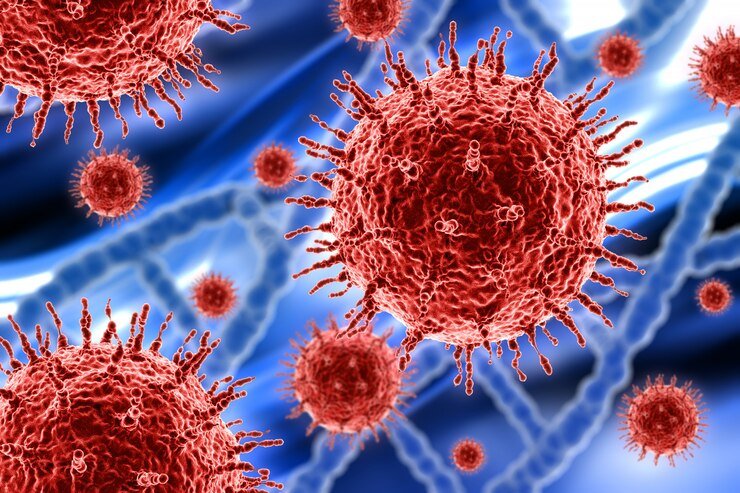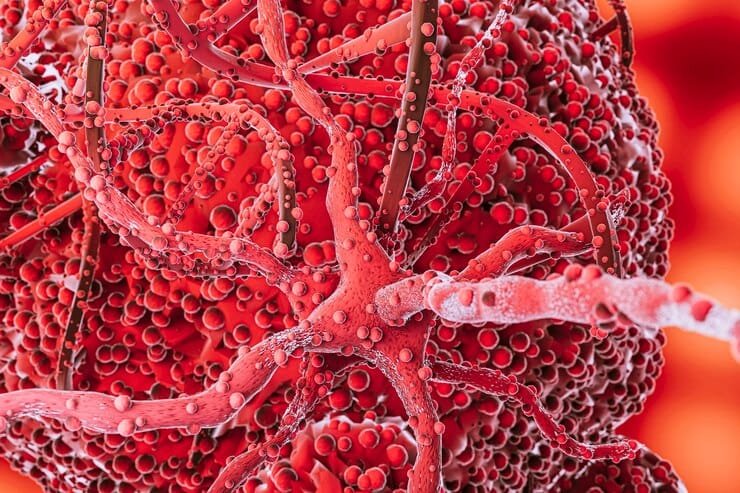- Rekomendasi Praktis Buah Anti Kanker
- MARI KENALI KANKER & CARA PENANGANANNYA
- ALTERNATIF PENGOBATAN KANKER TANPA TINDAKAN INVASIF !
- JANGAN PANIK ! Temukan Penanganan Aman Untuk Tumor Jinak di CMI Bandung
- KANKER BUKAN SEKEDAR BENJOLAN
- Herbal Medicinal Plants in Breast Cancer Treatment: An Overview
- Exploring Herbal Medicine in Cancer Treatment: Insights from India\\
- Enhancing Cancer Care: The Role of Complementary and Alternative Therapies
- The Use of Traditional, Complementary, and Alternative Medicine in Cancer Care: Insights from Sri La
- Medicinal Plants and Herbal Compounds in Cancer Treatment: Promising Research and Clinical Applicati
Introduction to Ayurveda and Cancer Prevention
The Role of Diet in Ayurveda

The article "Food-Based Interventions for Cancer Management: An Ayurvedic Perspective" discusses the crucial role of food-based interventions in cancer management and prevention from the Ayurvedic perspective. Ayurveda, a traditional medical system from India, emphasizes the importance of balance in the body to maintain health. According to Ayurveda, cancer prevention can be achieved through a balanced diet rich in phytochemicals found in plant-based foods. These phytochemicals have antioxidant properties that can combat oxidative damage to DNA, which is one of the main causes of cancer. Additionally, Ayurveda emphasizes the importance of incorporating six tastes in the daily diet to maintain body balance.
The Ayurvedic approach not only focuses on the individual components of food but also on the combinations and cooking methods that can affect digestion and nutrient absorption. For example, the use of spices like ginger and black pepper can enhance digestive fire (agni), which is crucial for maximizing nutrient absorption and eliminating toxins from the body. If digestion is not optimal, ama, or toxic substances, can form, contributing to tumor formation and other diseases. Thus, Ayurvedic principles aim not only to prevent cancer but also to improve overall health by maintaining balance and optimal function of bodily systems.
The article also notes that numerous studies have demonstrated the effectiveness of various foods and spices in preventing or inhibiting cancer growth. For instance, compounds like indole-3-carbinol found in cruciferous vegetables, lycopene in tomatoes, and isoflavones in soy products have been shown to possess chemopreventive properties. Research also indicates that a diet rich in fruits, vegetables, spices, and herbs can not only reduce cancer risk but also support general health. Therefore, integrating Ayurvedic food-based approaches into daily lifestyle can be an effective strategy for cancer prevention and health enhancement.
Baca Lainnya :
- From Ancient Medicine to Modern Medicine: Ayurvedic Perspectives on Health, Inflammation, and Cancer
- Exploring CAM Use Among Women with Metastatic Cancer: Insights and Recommendations
- Integrating Complementary Medicine in Cancer Treatment: Enhancing Symptom Management and Quality of
- Integration of Complementary and Alternative Medicine in Cancer Treatment: Enhancing Health Behavior
- Enhancing Cancer Care with Evidence-Based Complementary Medicine
Source: Food-Based Interventions for Cancer Management: An Ayurvedic Perspective
Cancer treatment at CMI Hospital is based on complementary medicine, which aims to repair cellular damage caused by cancer. Thousands of patients have successfully avoided surgery, chemotherapy, and radiation after undergoing this non-surgical cancer healing method. CMI Hospital remains committed to helping cancer patients.
WhatsApp: +62 821-1653-7983 (Dr. Juli)











